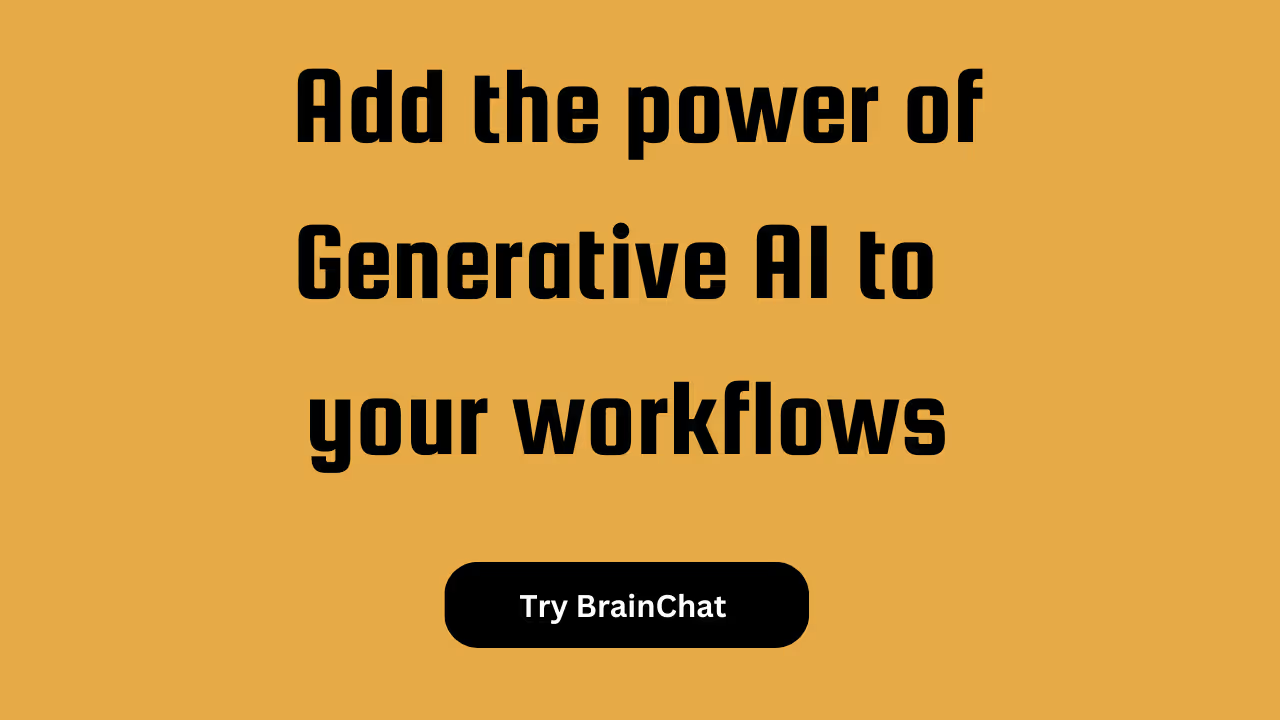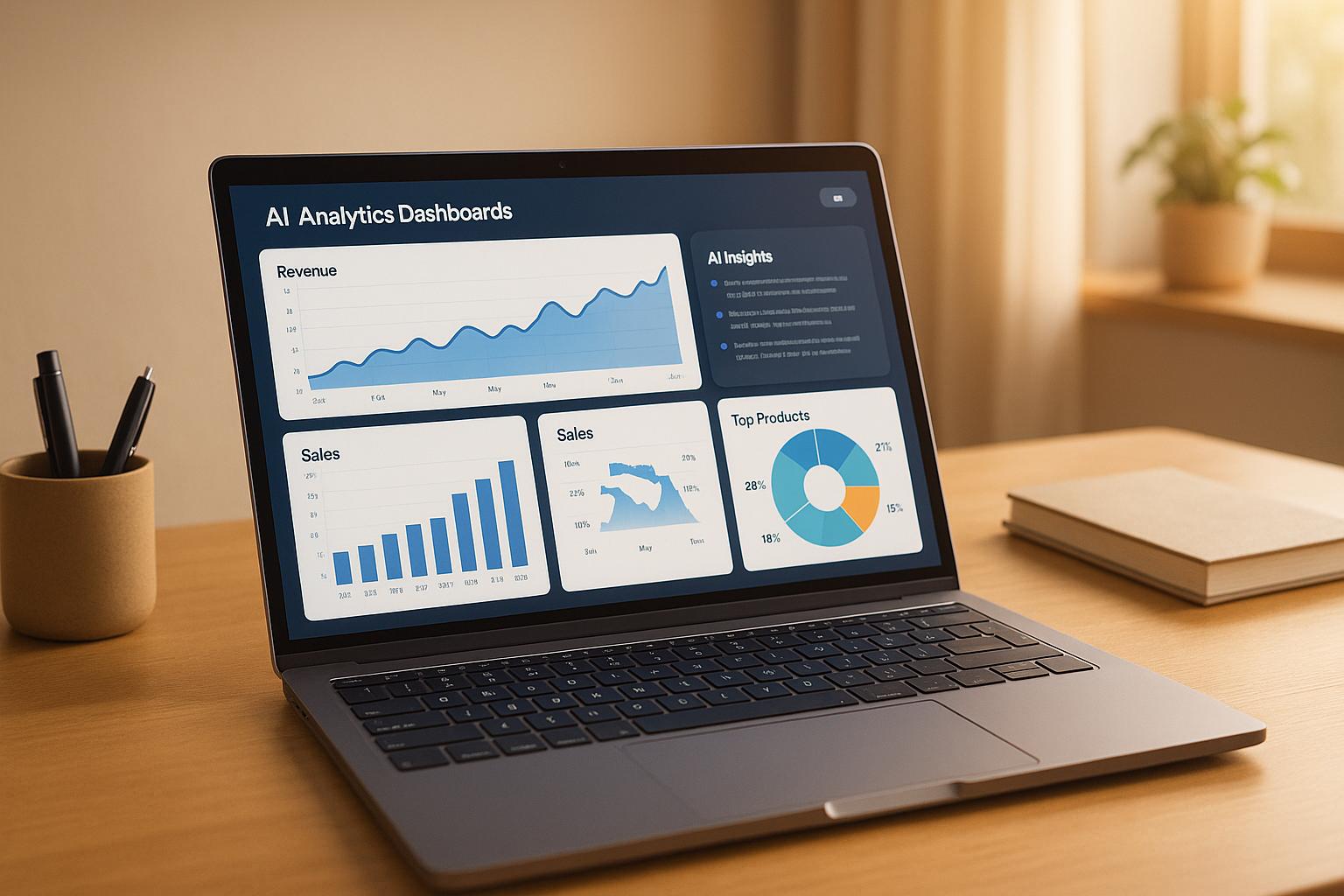
Why Should I Use AI at Work

Artificial Intelligence (AI) has evolved from a speculative concept in science fiction to a tangible and transformative force in the modern workplace. With its ability to mimic human thought processes and learn from data, AI promises unprecedented efficiency, productivity, and innovation. Using AI at work is not just a trend; it is a necessity for forward-thinking organizations aiming to stay competitive in this fast-paced digital era. This article delves into the numerous reasons why integrating AI into your workflow can be a game-changer.
Enhancing Productivity and Efficiency
One of the most compelling reasons to incorporate AI at work is its ability to enhance productivity and efficiency. AI systems can automate routine and repetitive tasks, allowing employees to focus on more complex and creative aspects of their roles. For instance, AI-powered tools can handle data entry, schedule meetings, sort emails, and manage customer service inquiries with minimal human intervention. This liberation from mundane tasks can significantly boost overall productivity.
Moreover, AI can process vast amounts of data at lightning speed, making it an invaluable asset for data analysis. Tools that utilize machine learning algorithms can analyze trends, predict outcomes, and deliver actionable insights faster than any human could. This results in more informed decision-making and can give companies a competitive edge in their respective industries.
Book a Demo with BrainChat: Harness the Power of AI in an Organized & Secure Environment
Your employees are already using ChatGPT. Why not let them use it in an organized and secure environment that you can control? Give them a better user experience, allow them to work together using AI, and keep the data in-house. On top of that, you can also build AI Assistants capable of scaling your Marketing, Customer Support, Operations, Strategy, etc.
Experience the difference BrainChat can make. [Book a demo today](https://brainchat.ai/book-demo) and discover how our AI solutions can transform your workplace.

Improving Decision-Making
AI's analytical capabilities extend beyond just speed; they also include accuracy and precision. Through techniques such as machine learning and deep learning, AI can identify patterns and correlations that might be invisible to human analysts. This capability is particularly beneficial in fields such as finance, healthcare, and marketing, where data-driven decisions are crucial.
For example, in the financial sector, AI algorithms can predict market trends and assess risk more accurately than traditional methods. In healthcare, AI can improve diagnostic accuracy by analyzing medical images and patient data, leading to better patient outcomes. Similarly, in marketing, AI can tailor campaigns based on consumer behavior insights, maximizing effectiveness and ROI.
Personalizing Customer Experiences
Modern consumers expect personalized experiences, and AI is instrumental in meeting these expectations. By leveraging AI, businesses can gather and analyze customer data to deliver highly tailored experiences. AI-driven chatbots and virtual assistants, for example, can provide personalized responses based on customer interactions, history, and preferences.
Additionally, AI can enhance recommendation systems used by e-commerce platforms, streaming services, and online retailers. By studying a user's past behavior and preferences, AI can suggest products, content, or services that are more likely to be of interest, thereby enhancing the customer experience and driving sales.
Facilitating Collaboration and Communication
In today's globalized work environment, effective communication and collaboration are more critical than ever. AI tools can bridge gaps and streamline these processes, making it easier for teams to work together regardless of geographical location. AI-driven platforms can translate languages in real-time, allowing for seamless communication between international teams.
Furthermore, AI can enhance project management by providing tools that track progress, allocate resources, and predict potential bottlenecks. By analyzing project data, AI systems can offer recommendations to optimize workflows and ensure timely completion of tasks.
Enhancing Cybersecurity Measures
As cyber threats become increasingly sophisticated, companies need robust security measures to protect sensitive information. AI is at the forefront of enhancing cybersecurity by detecting and mitigating threats in real time. AI algorithms can identify unusual patterns or behaviors that may indicate a security breach, allowing for quick and effective responses.
Moreover, AI can improve the accuracy of threat detection systems by continuously learning from new data and adapting to evolving threats. This proactive approach not only safeguards valuable data but also reduces the risk of costly security incidents.
Supporting Innovation and Creativity
AI is not just about automation and efficiency; it is also a catalyst for innovation and creativity. AI can assist in generating new ideas, designing products, and even creating art. For example, AI-driven design tools can help architects and product designers explore new concepts and iterate rapidly.
In content creation, AI can support writers, musicians, and artists by providing suggestions, generating content ideas, and even co-creating pieces. By augmenting human creativity with AI capabilities, businesses can push the boundaries of innovation and stay ahead of the curve.
Predictive Analytics and Business Insights
Predictive analytics is a powerful application of AI that enables businesses to anticipate future trends and make strategic decisions. By analyzing historical data, AI systems can generate forecasts and identify potential opportunities or challenges. This foresight is invaluable in areas such as supply chain management, inventory control, and financial planning.
For example, in retail, predictive analytics can help optimize inventory levels by forecasting demand for specific products. This ensures that businesses can meet customer demand without overstocking, thereby reducing costs and improving profitability. Similarly, in finance, predictive analytics can identify investment opportunities and assess market risks, aiding in better portfolio management.
Transforming Recruitment and Talent Management
AI is revolutionizing the recruitment and talent management processes by introducing efficiencies and reducing biases. AI-powered recruitment tools can screen resumes, perform initial interviews, and even assess candidates' fit based on predefined criteria. This accelerates the hiring process and ensures that the best candidates are shortlisted.
Additionally, AI can assist in talent management by identifying skill gaps, recommending training programs, and monitoring employee performance. By providing data-driven insights, AI helps HR professionals make informed decisions that enhance workforce development and retention.
Reducing Operational Costs
Implementing AI solutions can lead to substantial cost savings for businesses. By automating repetitive tasks, optimizing processes, and improving decision-making, AI reduces the need for manual intervention and minimizes errors. This translates to lower labor costs, reduced operational expenses, and increased profitability.
For instance, in manufacturing, AI-powered robots and predictive maintenance can improve production efficiency and reduce downtime. In logistics, AI can optimize routing and scheduling, leading to cost savings on transportation and fuel.
Adapting to the Changing Landscape of Work
The COVID-19 pandemic has accelerated the adoption of digital technologies and reshaped the work landscape. Remote work, virtual meetings, and online collaboration have become the norm, highlighting the need for adaptive technologies like AI. AI tools have facilitated this transition by enabling seamless communication, automated workflows, and improved productivity.
As the future of work continues to evolve, AI will play a critical role in helping businesses navigate these changes. By embracing AI, companies can remain agile, resilient, and prepared for the challenges and opportunities that lie ahead.
Fostering a Data-Driven Culture
In the modern business environment, data is often likened to oil—valuable and transformative when processed and utilized effectively. AI is central to fostering a data-driven culture within organizations. By leveraging AI to collect, analyze, and interpret data, businesses can make more informed decisions and create strategies that are grounded in empirical evidence.
AI tools can help demystify data for all levels of an organization, turning complex datasets into understandable and actionable insights. This democratization of data empowers employees at every tier to contribute to decision-making processes, fostering an inclusive and informed workplace culture.
Overcoming Common Misconceptions about AI at Work
While the benefits of AI in the workplace are manifold, there are still prevalent misconceptions and fears that must be addressed. One common concern is that AI will lead to job displacement. However, rather than replacing jobs, AI often augments human capabilities, allowing employees to focus on higher-value tasks that require critical thinking and creativity.
Another misconception is that AI is only for large, tech-savvy companies. In reality, there are AI solutions tailored for businesses of all sizes and across various industries. Small to medium-sized enterprises (SMEs) can also benefit from AI by implementing scalable and user-friendly AI tools that cater to their specific needs.
Implementing AI: Challenges and Considerations
While the advantages of AI are clear, implementing AI in the workplace does come with challenges that must be thoughtfully navigated. Organizations must consider the ethical implications of AI, ensuring that it is used responsibly and transparently. Issues such as data privacy, bias in AI algorithms, and the impact on employment must be addressed through clear policies and guidelines.
Moreover, investing in AI requires an upfront commitment of resources, including time, money, and skilled personnel. Businesses must plan carefully, starting with pilot projects that can demonstrate the value of AI before scaling up. Continuous training and upskilling of employees are also crucial to ensure they can work effectively with AI tools.
The Future of AI in the Workplace
Looking ahead, the integration of AI across various facets of work is only expected to deepen. Emerging technologies such as advanced robotics, natural language processing, and autonomous systems will further expand the capabilities of AI. The convergence of AI with other technologies like the Internet of Things (IoT) and blockchain will lead to even more innovative applications and solutions.
Businesses that proactively embrace AI and invest in building AI capabilities will be well-positioned to lead in their industries. The future of AI in the workplace is not just about automating tasks but empowering a smarter, more efficient, and innovative workforce.
Conclusion
Incorporating AI into the workplace is not merely an option; it is an imperative for businesses aiming to thrive in today's competitive and rapidly-changing environment. From enhancing productivity and efficiency to driving innovation and personalizing customer experiences, the benefits of AI are extensive and multifaceted. By fostering a data-driven culture and overcoming common misconceptions, companies can leverage AI to gain a significant competitive edge.
AI is transforming how we work, communicate, and make decisions. By understanding its potential and strategically implementing AI solutions, businesses can unlock new levels of performance, creativity, and success.
Turbocharge your team with BrainChat AI
Teams using BrainChat report a 40% boost in task completion speed. Imagine what your team could achieve.
%20(1).png)



